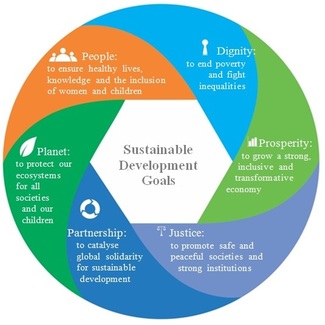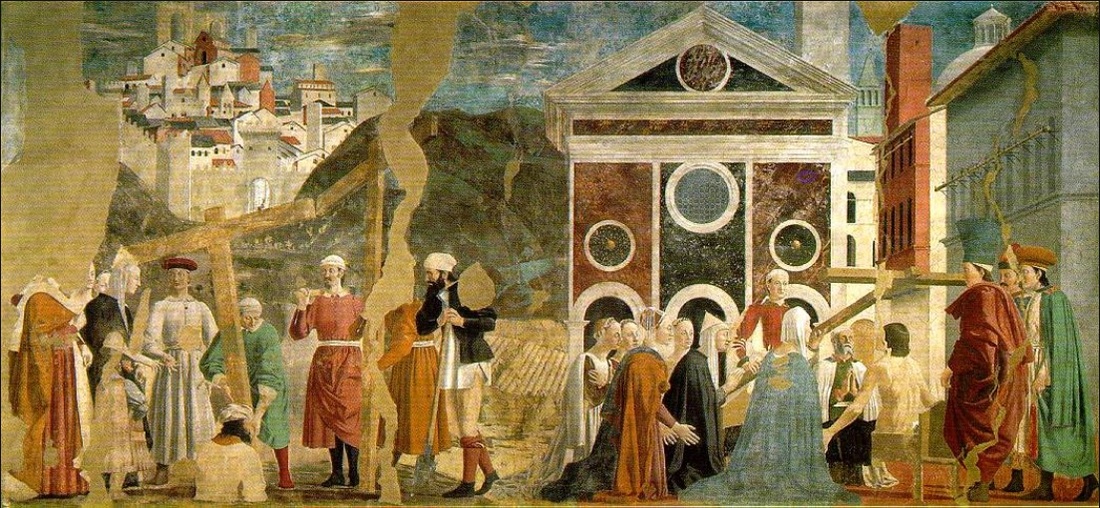|
It was a news item towards the end of prime-time news in the Netherlands and already received less coverage than previous acts of terrorism. Terrorists killing 28 Ethiopian citizens in Lybia. In Ethiopia it caused a shockwave of unbelief and anger that also culminated in some voilence during organized demonstrations at Meskel Square in Addis Ababa according to several news sources. The Ethiopian government declared three days of National mourning. Our hearts and minds and prayers are with all those who mourn their beloved and with the Ethiopian people as a whole. There is no way to describe the gruesome acts of terrorists that purposefully targeted "worshippers of the cross" like with Egyptian and Syrian Orthodox Christians earlier in the year. Ethiopia especially is a country that linked itself to what they call "The True Cross". Apart from the tremendous impact for families and friends of the victims, Ethiopian culture and society was hit in its heart. For many Ethiopian Orthodox Christians and other Ethiopians as well, Meskel (or The Finding of the True Cross) is a festival that carries a lot of meaning and both represents religious as well as cultural heritage that is treasured by all. Bed, bath and breakfast
Ironically this week the Dutch parliament prepared for a European Council meeting where its prime minister will be talking to his fellow prime-ministers discussing the 'wicket problem' of the many boat refugees in the Mediterranean trying to make it to Europe. And at the very end of the chain: Today Dutch parliament agreed on a minimum support to illegal immigrants supporting 'bed, bath and breakfast' before they will be transferred to a departure centre in the North-East of the country facilitating their 'voluntary' return to their home countries. Circular migration of a sort that politicians have not even started to comprehend. Innovation On the other end of the spectrum, I have recently joined EP-Nuffic, an organization that aims at a type of circular migration linked to knowledge and innovation. The resulting knowledge circulation should help accessing knowledge markets worldwide, solving some of the most challenging problems with water, food security and other policy priorities, while keeping our economy in shape. According to the report of the Scientific Council for Government Policy "Towards a Learning Economy", government’s main task is to develop organisations, relationships and career patterns in a way that maximises knowledge circulation. Traditionally Nuffic has been facilitating quite a number of scholarships for people from all over the world to kick-start or have a through-start with their career facilitated by a Dutch knowledge institution. Alumni of these courses are nowadays occupying important positions in governments and businesses world-wide. The program has been hugely successful and next month I will be joining an alumni event in South-Africa that brings together quite a number of alumni to see how we can better connect and stay in touch. Since 2013 EP-Nuffic even manages a program "Make It In The Netherlands" trying to persuade talented individuals to linger on for a year in the Netherlands after having completed their MSc or PhD degrees in order to tighten their relations with the Dutch. I cannot help thinking that amongst those who managed to cross the Sahara and the Mediterranean while escaping terrorists and criminal minds of smugglers and finally 'made it to the Netherlands' there must be a few good brains too good to return home very quickly (see also: http://www.migrantscontribute.com/). While starting this blog some three years ago I have stated that there are three groups of people connecting societies most effectively: entrepreneurs, students and migrants. If we could only somehow connect these groups in a meaningful manner, that would be another true cross to find.  The six 'essential elements' out of the synthesis report The six 'essential elements' out of the synthesis report In his synthesis report of the new Sustainable Development Goals entitled "The Road to Dignity by 2030" the Secretary General of the UN, Mr. Ban Ki Moon, tried to reduce the complexity of 17 goals and 169 targets to 6 essential elements: Dignity, People, Planet, Partnerships, Justice and Prosperity. Reviewing his grouping at the website of the Guardian I noticed education to be grouped with health and hunger under the subheading people. Though this seems to be a logical choice, I would like to challenge it here. The first reason for doing so is to be found in the report itself that combines explicit reference to 'a moment of enormous sicentific promise' with an 'age of gnawing deprivation' in one sentence under teh heading dignity (p17). This illustrates that achievements in science and education can be contrasted with aggravating poverty.This makes the case convincingly to include education in the equation when it comes to dignity. Basic Service For many years education took its place amongst the Basic Services programs of donor agencies and NGOs active in development cooperation. Something for which the State as duty bearer was to be kept accountable. To view access to education as a baic human right has long been heralded. Billions went into the Education for All agenda and much as been achieved. The report on the achievement of this agenda against the Millenium Development Goals that was published by UNESCO last week showed good progress in access. However, at the same time it shows limited progress in terms of profitability and increased access to jobs and markets. After all, education alone is not enough to earn a living. In his video message Mr. Ban Ki Moon welcomed the report but urged governments to 1) prioritize the quality of education and 2) value its contribution to global citizenship. The latter also points to a direction where education serves a political agenda. It allows people to take their place in the universe by understanding what is happening around them. It should allow for exchange about core values, intrinsic motivations and maximising creativity. In a taylorian world-view education is to make people ready for the labor market. To 'fit in' and take their rightful place as a loan slave walking the road that others created. And for many students the expectation of income may still be the major driver for achieving educational results. Promoting creativity In a post-modern world-view this concept gradually gives way to a much more self-edifying concept of discovery of skills and talents, squaring them with passions and interests resulting in not only paying jobs but also fulfilling jobs that help people discover who they already are. All in all, in a post-modern world view, education helps developing professional skills while unpacking a personal idenity that will use these skills for personal ambitions. Education therefore is much more an issue of human dignity than of a basic necessity to survive. In fact some of the most successful entrepreneurs failed in education, which obstructed their creativity rather than promoting it. Hence my plea to elevate education from a basic need that the State has to provide to a matter of dignity which the State needs to protect. The honor and dignity of individual talents are at stake. If that is going to color class-room settings a massive transformation of education may be expected and no longer Ban Ki Moon has to worry about the quality of education against an external standard. Assessment regimes will be completely altered and tailored to a performance appraisal of teachers and students in their ability to maximally use each others talents and experiences for tackling the worlds most pressing problems, identifying local solutions. Possibly this could be target number 170. "We live in a world of plenty, and at a moment of enormous scientific promise. And yet, for hundreds and hundreds of millions across the globe, this is also an age of gnawing deprivation" |
About meMy name is Reinier van Hoffen. U®Reading
Click here for a summary.
Also find the text of a lecture Dr. Achterhuis held at the 2012 Bilderberg conference. Archives
August 2022
|
AddressNachtegaallaan 26
Ede, the Netherlands |
Telephone+31 (0)6 1429 1569
|
info@uraide.nl
|

 RSS Feed
RSS Feed
















